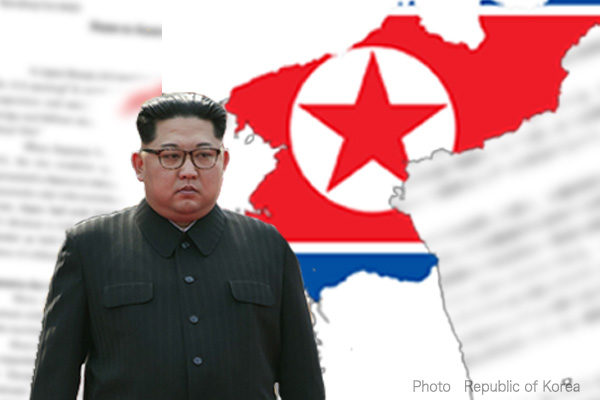North Korea has come up with blatant nuclear intimidation. After North Korea test-fired an intercontinental ballistic missile that would reach the U.S. mainland, South Korean Defense Minister Suh Wook on April 1 commented that the South had capacity and was ready to conduct precision strikes on the origin of any missile attack, and relevant command and support facilities if missile firing signals are clear. On April 2, the following intimidating statements were issued by two senior North Korean officials -- Kim Yo Jong, Chairman Kim Jong Un’s younger sister and deputy department director of the Workers’ Party of Korea, and Pak Jong Chon, head of military section and member of the WPK Politburo Presidium.
Blatant intimidation to South Korea
Kim said: “The senseless and scum-like guy has dared to mention the ‘preemptive strike’ at a nuclear-armed state, in his senseless bluster which will never be beneficial to South Korea, either. […] South Korea should discipline itself if it wants to stave off disaster.”
Pak said: “It is a lunatic act steeped in confrontation to spit out the so-called preemptive strike on a nuclear state. […] If the South Korean army commits such a dangerous military action as preemptive attack on our state with any misjudgment, our army will mobilize all its military power to exterminate major targets in Seoul and the South Korean army.
Following Russian President Vladimir Putin, North Korea has threatened to use nuclear weapons against a non-nuclear country. In its annual white paper published in 2021, the Japanese Ministry of Defense said, “North Korea is considered to have already miniaturized nuclear weapons to fit ballistic missile warheads and possess the capability to launch an attack on Japan with a ballistic missile fitted with a nuclear warhead.” In the future, North Korea may intimidate Japan with a potential nuclear attack.
Japan and South Korea deal with North Korean nuclear threats with extended deterrence under the U.S. nuclear umbrella. But the extended deterrence will substantially weaken as North Korea possesses nuclear missiles that can reach the U.S. mainland. Japanese, U.S. and South Korean authorities consider that North Korea has yet to acquire technology for an ICBM warhead’s reentry into the atmosphere. If North Korea acquires the technology, a grave crisis may emerge. These authorities have not published any view about whether North Korea has acquired the technology through the ICBM test-firing on March 24.
In the U.S., the Biden administration and the Republican Party have shown little interest in North Korea’s provocations with a series of missile-firing tests since January this year. Due to opposition from Russia and China, the United Nations Security Council has not adopted a resolution condemning missile-firing tests let alone imposed additional sanctions on North Korea.
Nuclear-armed Japan is an option
Japan is now put into the same situation as Britain and France when the Soviet Union completed nuclear missiles to reach the U.S. mainland. Then, the two countries decided to arm themselves with nuclear weapons, considering that the U.S. might not be willing to put its mainland at risk to defend other countries.
Any country has no choice but to make its full efforts first to defend itself. The Nuclear Nonproliferation Treaty, under which Japan has promised not to arm itself with nuclear weapons, has an article that says, “Each Party shall in exercising its national sovereignty have the right to withdraw from the Treaty if it decides that extraordinary events, related to the subject matter of this Treaty, have jeopardized the supreme interests of its country.” I regard North Korea’s nuclear intimidation as one of “extraordinary events.” Japan should have a great debate what it should do to avoid unreasonable nuclear intimidation.
Tsutomu Nishioka is a senior fellow and a Planning Committee member at the Japan Institute for National Fundamentals and a visiting professor at Reitaku University. He covers South and North Koreas.


